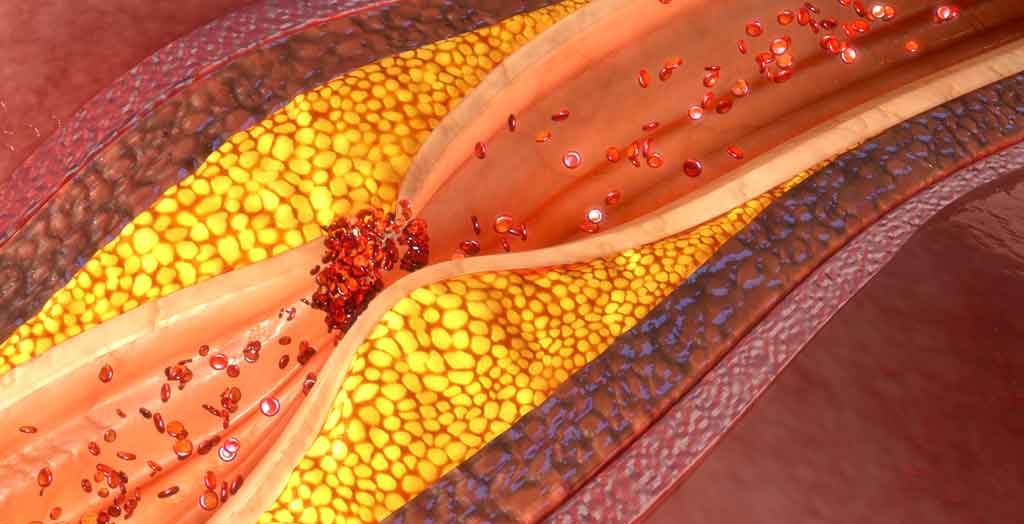What Is Coronary Artery Disease?

What is coronary artery disease? Who is at risk, and how can it be prevented? Here’s what you need to know about this form of heart disease.
Heart disease is one of the deadliest diseases out there. Globally, it is responsible for about 18 million deaths each year according to the World Health Organization. In the United States alone, heart disease kills about 700,000 people annually. It is a leading cause of death for both men and women.
There are many types of heart disease, but one of the most common is coronary artery disease. The Centers for Disease Control and Prevention reports that it is the single most common form of heart disease in the U.S., killing nearly 400,000 people each year.
But what is coronary artery disease? Who is at risk, and how can it be prevented?
YOU MIGHT ALSO LIKE: Does Your Blood Pressure Need to Be Lower?
What is coronary artery disease?
Coronary artery disease, or CAD, occurs when a substance called plaque builds up in the arteries that carry blood to your heart. Plaque is made up of cholesterol deposits. When cholesterol builds up, it causes these arteries, known as coronary arteries, to narrow. This narrowing is called atherosclerosis.
When too much plaque builds up in your coronary arteries, it slows the flow of blood to your heart. This can cause discomfort in your chest, known as angina. Angina is the most common sign of CAD. Other coronary artery disease symptoms include shortness of breath.
Coronary artery disease can cause an irregular heartbeat, or arrhythmia. Eventually, CAD can weaken your heart, damaging its ability to pump blood and causing heart failure.
Risk factors for coronary artery disease
Certain factors can put you more at risk for coronary artery disease.
Some of these risk factors are related to your lifestyle, including smoking, eating an unhealthy diet, physical inactivity, and high levels of daily stress. Others are related to your physical health, including high blood pressure and high cholesterol. Studies have found that checking blood pressure and cholesterol levels can accurately predict who is likely to develop coronary artery disease.
Certain health conditions can put you at an increased risk for CAD. People with diabetes are particularly likely to develop coronary artery disease, and some research has found that this risk is even higher for women than for men.
Some risk factors for CAD are out of your control, such as age and family history. You are more at risk as you get older or if you have close relatives with coronary artery disease.
How to prevent coronary artery disease
Even if you have risk factors, you can protect your heart and reduce your chances of developing CAD if you make healthy lifestyle changes.
Quitting smoking is one of the best ways to prevent coronary artery disease, along with reducing stress and maintaining a healthy weight.
Eating a healthy diet, with plenty of fruits and vegetables, is an important part of preventing coronary artery disease. You should limit salt in your diet, as this will help control your blood pressure, along with reducing the amount of sugar you consume in both foods and beverages. Those changes are especially important if you are overweight or have diabetes or high blood pressure.
Many doctors will also recommend that you add whole grains into your diet, as some studies indicate that eating whole grain foods can lower your cholesterol, which can reduce your risk of developing CAD.
Exercise and physical activity contribute to preventing CAD, improving your heart function, helping you maintain a healthy weight, and lowering your blood pressure, cholesterol, and sugar levels. Exercise becomes even more important if you already have a history of heart disease.
A review of studies found that exercise is beneficial for those who already have CAD, reducing your risk both of rehospitalization and a second, fatal cardiac event. Make sure you check with your doctor before starting any exercise program.
According to Edward A. Fisher, MD, PhD, former editor of the American Heart Association (AHA) journal and a volunteer for the organization, it is important to begin preventative measures as early as possible. That’s because the plaque buildup that causes CAD in adults can happen at any time in your life.
“Coronary artery disease begins in childhood, so that by the teenage years, there is evidence that plaques that will stay with us for life are formed in most people,” said Fisher in an interview with the AHA. “Preventive measures instituted early are thought to have greater lifetime benefits.”
No matter how old you are, however, it is never too late to start practicing healthy habits if you want to prevent coronary artery disease. Talk to your doctor to find your risk level and develop a prevention plan that is right for you.
YOU MIGHT ALSO LIKE: How to Lower Cholesterol with Aerobic Exercise
Updated:
March 09, 2023
Reviewed By:
Christopher Nystuen, MD, MBA